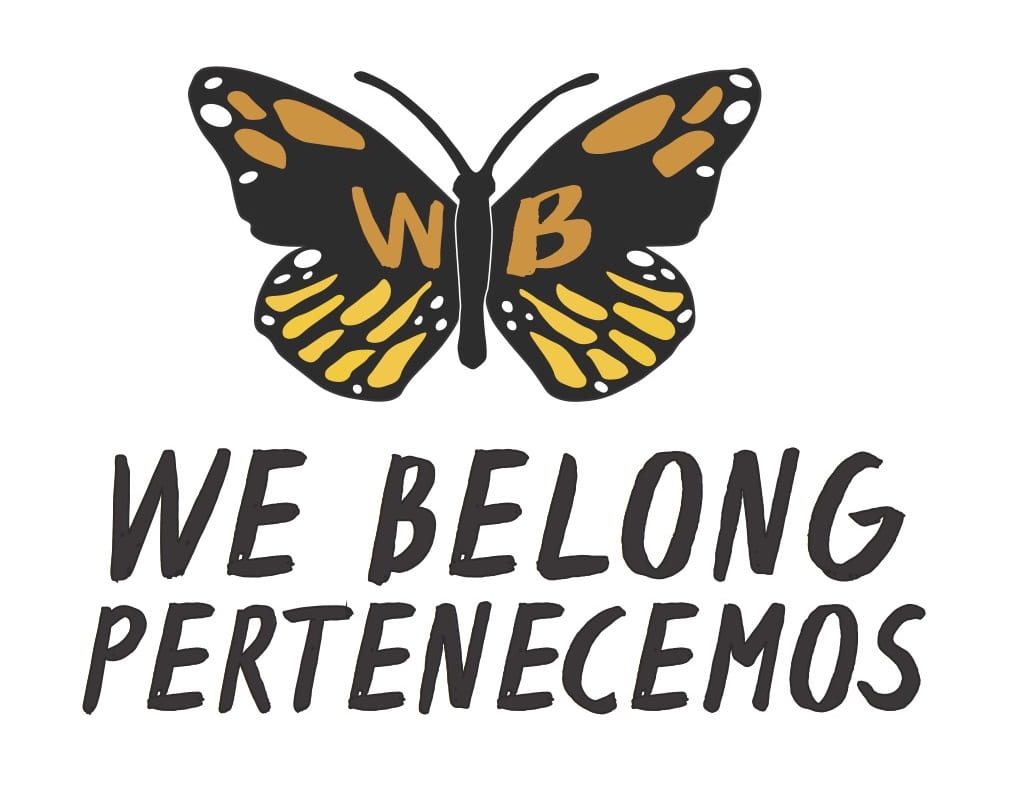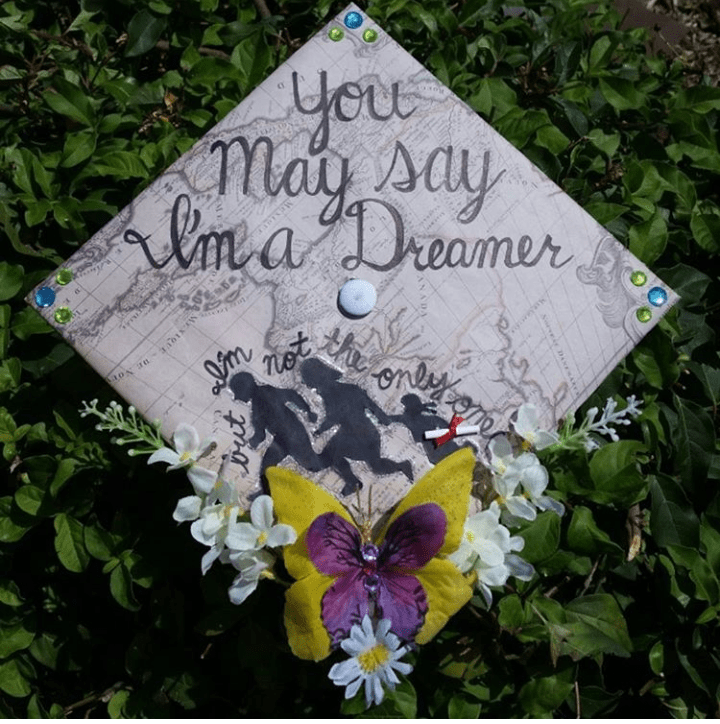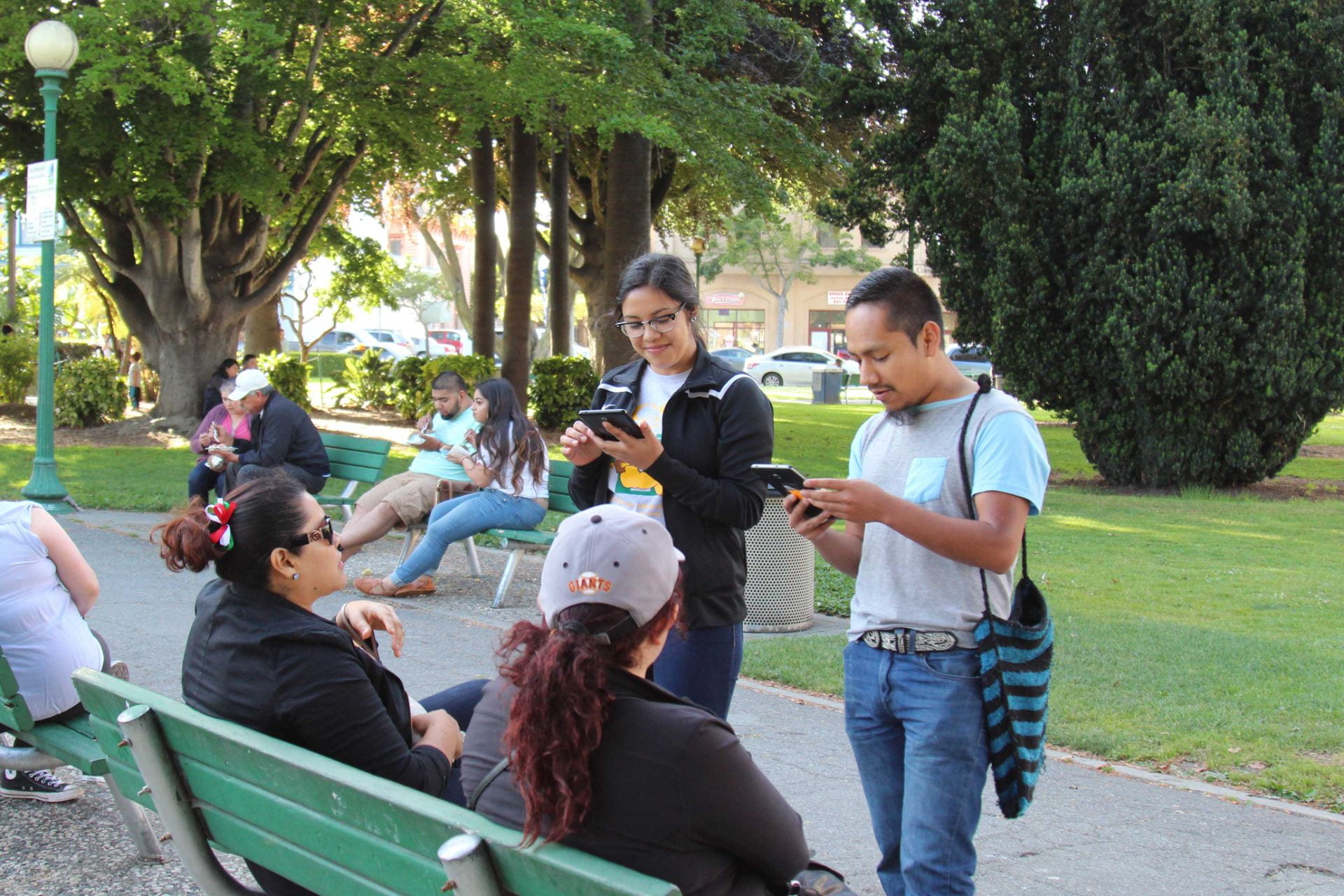The We Belong Project: Collaborative for Community-Engaged Research & Immigrant Justice
Oaks 153, Community Mapping, is currently part of a larger university-community research project on what life is like for immigrants right now in Santa Cruz County, and how we can move forward to improve conditions for all community members.
We are working to gathering stories and analysis from members of immigrant communities in our county, focusing especially on people who belong to mixed-status families, and people who work in organizations or agencies serving immigrants.

We Belong Logo

Photo by Claudia Arias Torres, 2019.
The We Belong Photo Project by Carina Gabino and Sean McNaughton was funded by the UC Art & Design Placemaking Initiative.
Most of the research for the project is carried out by undergraduate UCSC students enrolled in one or both of these courses:
-
Oaks 153 in Winter (Community Mapping)
-
Sociology 139T in Spring (Community-based Research Practicum)
With the support of our funders, We Belong research is also advanced in the summer.
Grants fund summer internships for undergraduates, and Graduate Student Researchers, who continue to conduct interviews, help with data analysis, and work on digital presentation.
For more information or to participate, contact Co-PIs and Instructors Steve McKay or Leslie Lopez.
Read more below: Project background and Research Model.
In 2016, local community leaders, organizations, agencies, and concerned individuals came together in new ways, to analyze and address how our county could be a safer, healthier place for ALL of us to belong and thrive in. Amid the many urgent, immediate and long-term issues discussed, this major theme emerged as central:
Central Coast immigrant families are under-served and under-represented;
and the lack of data available makes it difficult to address this problem.
In 2018, the “We Belong” Collaborative for Community-Engaged Research and Immigrant Justice was launched,
in partnership with the Thriving Immigrants Collaborative, based in Watsonville.
We Belong Project Objectives
- Elevate immigrant voices/change public narrative
- Strengthen the local networks and coalitions that already exist /
Help people come together to discuss experiences and aims - Collect and present data on website:
- a digital map of county resources
(legal, health, housing, education, cultural-community, other) - relatable stories, portraits of life
- recommendations for policies & practices
- a digital map of county resources
- Contribute to a strategic plan that allows immigrants living in Santa Cruz County to not just survive but belong and thrive
Research Questions:
- How do immigrants, providers, and organizers in SC County define “belonging;” and how is this related to “thriving”?
- What is life like for immigrants in our County right now?
- How can we create the conditions in which ALL residents can belong and thrive?
Community Engagement and Research Model:
The project has been informed by two primary action-research models with UCSC undergraduates:
- CISER Community-Initiated, Student-Engaged Research model–Center for Labor Studies, in Sociology (Steve McKay, Miriam Greenberg, 2014-2018). Collaboration with campus and community partners to develop research questions and approach; broad student-engaged community survey and analysis; digital stories, community forums; website.
- Working for Dignity (2014-2015) with CRLA
- No Place Like Home (2017-2018) with CRLA, Community Bridges, Community Action Board
- Community Mapping course-based model–CARA Program, Oakes College. (Leslie López, 2015-2018). Collaborate with organizations to develop action research questions for multi-modal inquiry. Students use small-scale qualitative research methods; analyze assets and barriers for community power and social justice in a shared space; develop an assessment and recommendation for next action steps.

Students conduct survey research for the
No Place Like Home project
I appreciated that the class was not solely based on the readings and was instead formatted to allow students to think creatively about the experience of mixed status and immigrant communities in Santa Cruz. For the first time it seemed I was being asked to really think about my place in relation to this phenomenon.
Knowing my history, where I am now, and where I envision myself and my community needs to be, I feel as if community engaged research like this can lead to transforming the lives of the immigrant community.
It was rewarding to be able to learn how to conduct social science research. I feel like most of the research opportunities are only available from STEM majors. I like the combination of academic rigor and at the same time doing something to help UCSC’s immediate community of Santa Cruz County.
We Belong Partners
Thriving Immigrants Collaborative, California Rural Legal Assistance, Community Action Board, Community Bridges, County Office of Education, Health Improvement Partnership Project, Resource Center for Non-Violence, Sanctuary Santa Cruz, Senderos, Watsonville Law Center
We Belong Graduate Research Team, 2019-2020
Theresa Hice Johnson, Sociology
Fatima Raja, Education
Daniel Rodríguez Ramírez, Psychology
Karina Ruiz, Latin American Latino/a Studies
Everett Team, 2020
Isabelle Donohoe
Christina De Leon
Marla Hernandez
Tayler Olson
Alejandro Ruelas-Mora
Sophie Shaw
Our Funders
Institute for Social Transformation – Sprout Grant
Student Fee Advisory Committee
Monterey Peninsula Foundation
Division of Social Science – Building Belonging Internships
